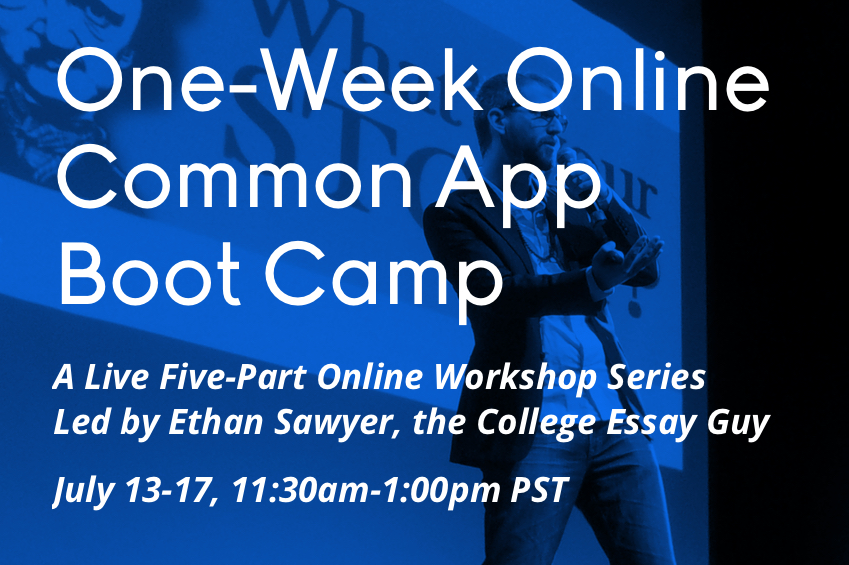 We are in the midst of the application season, probably one of the most stressful, scary, and overwhelming times for most teenagers and their parents. I want to share with you the top three mistakes students make on the Common Application and how you can make sure your children don’t make them and get into the colleges of their dreams.
We are in the midst of the application season, probably one of the most stressful, scary, and overwhelming times for most teenagers and their parents. I want to share with you the top three mistakes students make on the Common Application and how you can make sure your children don’t make them and get into the colleges of their dreams.
1. Not Telling Their Unique, Compelling Story
Schools are looking for well-rounded student bodies NOT well-rounded students. The admissions committee and anyone else should be able to read through your child’s application and get a sense of exactly who they are and what they care about. This doesn’t happen if your child is president of every club, plays every sport, and volunteers at 20 different organizations. Your child’s application should focus on depth not breadth, quality over quantity. Don’t just take my word for it. This is what Harvard has to say about your child’s activities:
We are much more interested in the quality of students’ activities than their quantity so do not feel you need to fill in the entire grid! Contributions students make to the well-being of their secondary schools, communities and families are of great interest to us.
Everything from the activities to honors to courses to essays should come together and tell your child’s unique, compelling story. Getting an outsider’s look at your child’s complete application can really help with this.
2. Underselling Their Activities
I’ve seen students do it over and over again. The activities are seen as an afterthought, and students give very little attention to them. They also tend to underestimate the time spent on their activities. This is where your child sets themselves apart from all the other high test score, high GPA students. This is where they become “that girl” or “that guy” – the socially responsible athlete, the engineer who cares about social justice, the piano player who wants to help autistic kids.
Students are only allowed 150 characters to describe each activity, so the descriptions need to be compelling and concise. All of the tips that apply to resumes apply to this activity list. Your child needs to focus on numbers, like the number of new members they brought into the club, the amount of money they earned/got donated/managed, the number of participants at their events. Make sure they put numbers in every description. If the honors they listed previously were associated with an activity, be sure they tie that back in. The activities should sound as impressive as possible. One tip I absolutely love for this section is to include a website for the activity if there is one.
3. Rushing Through the Supplements
Each college has questions and many of them require writing supplements. These are just as important as the Common Application itself. Students often leave this until the end and struggle with it. Make sure your child spends as much time on and with their supplements as they do with the rest of their application.
Many writing supplements ask “Why School X?”. One tip I give all the students I work with is to mention specific activities, programs, and professors at the school that they’re excited to work with and be involved in. Remember, what the supplements are really asking is why your child should be admitted to that particular college. Make sure their application and supplements describe how they will contribute to the school and its legacy.
Now that you know the top three mistakes students make on their Common Apps, you can help your child avoid them and get into their dream college. Get my Ultimate Guide to the Common App plus worksheets and tools to help your child create their best application and my favorite college admissions resources and websites. All totally FREE!
_______________________
Today’s guest post is from Jessica Yeager, a grad of Harvard and MIT, and a tutor and college coach for high-achieving students and their parents at Impress the Ivies. You can get her Ultimate Guide to the Common App for free.






